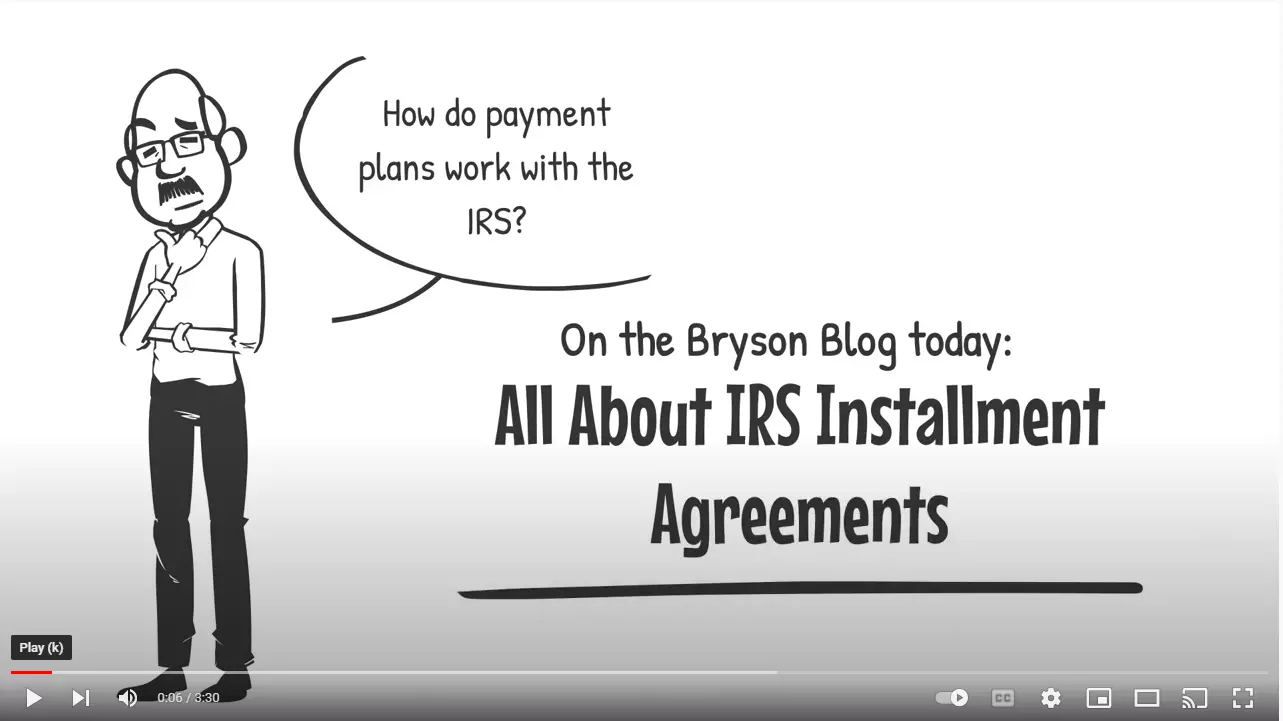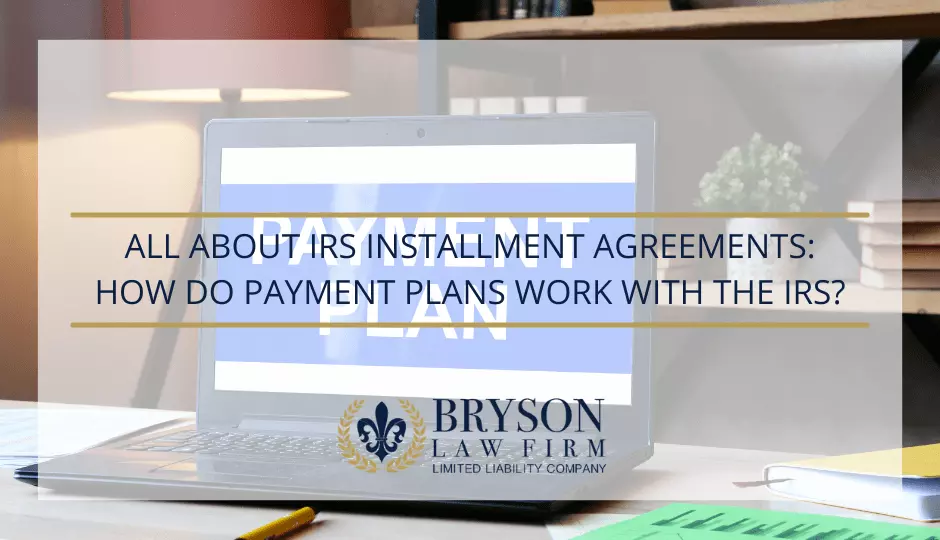It’s common knowledge that the IRS will generally offer Taxpayers who owe back taxes a payment plan if they aren’t able to full-pay the balances owed, but we frequently receive questions from Taxpayers on key components of the IRS Installment Agreement options that are not as well-known. Additionally, something many Taxpayers aren’t aware of is that there are many different types of payment plans with the IRS. Let’s dive into what an IRS payment plan is, how it all works, and the different types of IRS payment plans today.
What is a payment plan with the IRS?
A payment plan, or “Installment Agreement”, is an agreement a Taxpayer makes with the IRS to pay back taxes owed over an extended period.
Will the IRS be able to garish my wages or levy my accounts once I set this up?
It is a formal Resolution with the IRS, meaning that once you are in a plan, you should not be at risk for any wage garnishments, bank levies, asset seizures, etc. Additionally, a formal agreement being set up should also reverse any “Seriously Delinquent Tax Debt” certifications on record with the State Department that would have otherwise had implications on the Taxpayer’s passport. The IRS can and typically will file a Notice of Federal Tax Lien in the public records before or after an Installment Agreement is set up. The IRS will also take all tax refunds due to the Taxpayer and apply them to the debt (typically, to the oldest tax liability first) until the balance is paid in full.
Will penalities and interest stop once I set a payment plan up?
It is important to note that even once in a payment plan with the IRS, penalties and interest continue to accrue. The balances will be subject to monthly penalty and interest accruals until the balances have been paid in full. The interest rate is the federal short-term rate plus 3%. The failure-to-file penalty rate decreases once a formalized agreement is established (from .5% of the tax owed per month to .25% of the tax owed month – capped at 25%).
There is also an Installment Agreement Set-Up fee that ranges from $31-$225 depending on how the plan is set up, the type of plan established, and whether the Taxpayer is deemed to be a “Low Income Taxpayer.”
Penalty relief may be available – check out Penalty Abatement Requests/Penalty Relief on our website for more information about that.
Will I pay this amount forever?
You will typically pay the Installment Agreement until the balances have been paid or until the 10-year Collection Statute Expiration Dates (CSEDs) have expired on the accounts. The IRS applies payments to the tax first, then to any penalty, then to interest.
How much do I have to pay?
There are many different types of Installment Agreements available to Taxpayers. There are 2 main categories of IRS Installment Agreements – Streamlined Installment Agreements and Ability-to-Pay Installment Agreements.
- Streamlined Installment Agreements:
- Under the IRS’ Fresh Start Initiative, there are certain situations in which no financial information is required to set up a payment plan if the Taxpayer can pay the balance in full over 72 months or less (with the balances to be paid for in full prior to any 10 year Collection Statute Expiration Dates). Typically, the balance must be below $50,000 to qualify. Under the 2020 Taxpayer Relief Imitative, the Streamlined Installment Agreement was expanded to qualified Taxpayers who owe less than $250,000.
- Ability-to-Pay Installment Agreements:
- Any other type of Installment Agreement will be based on the Taxpayer’s current financial “Ability-to-Pay.” The amount of the monthly payment requested is calculated on the amount the Taxpayer is left with after all “necessary” expenses are subtracted from total monthly income. The IRS has set “allowable” expenses that they are not required to deviate from if the Taxpayer pays more per month for a certain expense than traditionally allowed by the IRS.
What is the process for making this request?
At Bryson Law Firm, LLC, we evaluate the Taxpayer’s current financial situation and perform an analysis over the Taxpayer’s IRS Accounts and balances to determine the best Installment Agreement option available. Depending on the balances owed and the Taxpayer’s status with the IRS, we’ll then submit our request online, through the Automated Collections System Support (which involves negotiations via telephone calls and facsimile transmissions), to the Office of Appeals, or with a local IRS Revenue Officer/Agent.
We’ll negotiate back and forth with the IRS to settle on a monthly payment that best suits your budget.
Once we submit our request, there is a “Pending Installment Agreement” in place which protects Taxpayers from Collection Activity. However, it also suspends the running of time under the 10-year Collection Statute Expiration Dates, so it is important to ensure the plan is established in a timely fashion.
What happens if I cannot pay my monthly bill to the IRS?
There are several things that can cause a default of an IRS Installment Agreement. Those include:
- Failure to pay the monthly payment
- Failure to file all subsequent tax returns on time
- Failure to file all future tax payments
If the Taxpayer receives a Notice of Intent to Terminate the Installment Agreement, they should work to reinstate the agreement or submit an alternative resolution request quickly to avoid collection activity. A reinstatement fee may be required.
If you’re struggling to pay an overdue tax debt, an IRS Installment Agreement may be a great fit for you. Contact Bryson Law Firm, LLC today to schedule a free, initial consultation with our office to explore this option further.
























